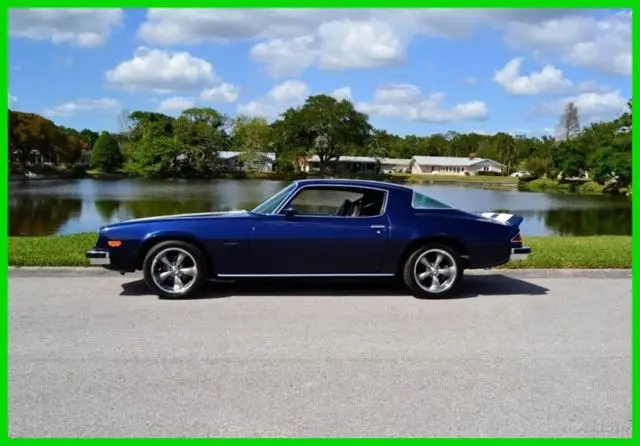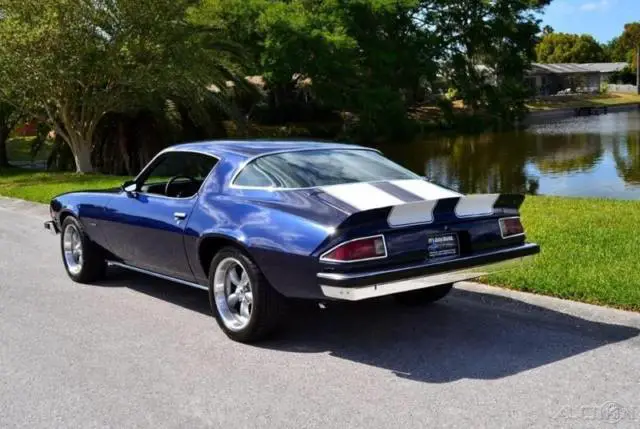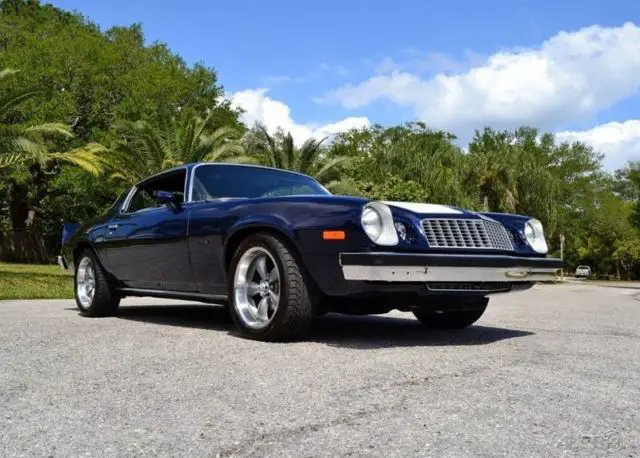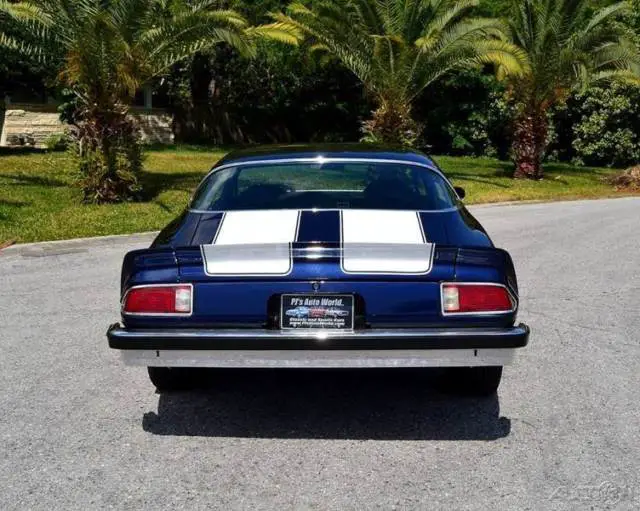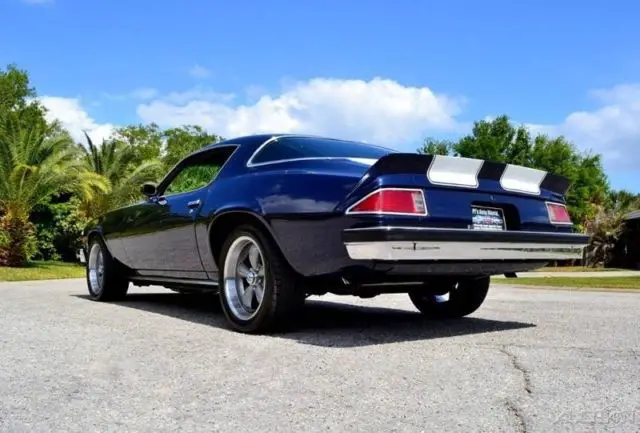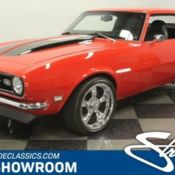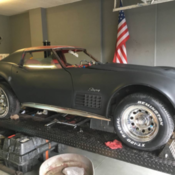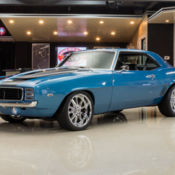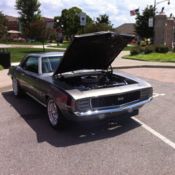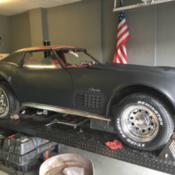1976 RESTOMOD 406 V8 5 Speed Tremec Keith Black pistons A/C, PS,PDB
Price: US $34,900.00
Item location: Clearwater, Florida, United States
Description:
1976 Chevrolet Camaro RESTOMOD
1976 Chevrolet Camaro Resto Mod For Sale. 406 cubic inch V8 engine, Eagle crank and rods, Keith Black pistons, Comp cam roller cam shaft, Edelbrock heads, electronic ignition, Fast electronic fuel injection, ceramic coated headers, custom exhaust with Magnaflow muffler, A/C, power steering, disc brakes, Tremec 5 speed overdrive transmission, aluminum driveshaft, upgraded posi traction rear ended with 3:08 gears and 31 spline axels, 17" gray center Coy's alloy wheels with BF Goodrich G-force T/A tires, beautiful midnight blue metallic exterior with white Rally stripes, rear deck spoiler, polished aluminum bumpers, color keyed sport mirrors, black bucket seat interior, center console, Hurst shifter, fully functional tachometer dash (gauges restoration performed by instruments services), Pioneer AM/FM/CD radio, highly documented build with original purchase paperwork and paperwork for upgrades. This beautifully restored southern Camaro is going the pride of its new owners collection, highly upgraded and one of the best driving classics we have ever had the opportunity list. Don't let your dream car get away, you won't find another like this one!!! Price $34,900 Automotive History: The second-generation Chevrolet Camaro was produced by Chevrolet from 1970 through the 1981 model years. It was introduced in the spring of 1970[1] Build information for model 123-12487 was released to the assembly plants in February of that same year. It was longer, lower, and wider than the first generation Camaro. A convertible body-type was no longer available. GM engineers have said the second generation is much more of A Driver's Car than its predecessor. Dubbed Super Hugger, the second-generation Camaro was developed without the rush of the first generation and benefited from a greater budget justified by the success of the first generation. Although it was an all-new car, the basic mechanical layout of the new Camaro was familiar, engineered much like its predecessor with a unibody structure utilizing a front subframe, A-arm and coil spring front suspension, and rear leaf springs. The chassis and suspension of the second generation were greatly refined in both performance and comfort; base models offered significant advances in sound-proofing, ride isolation, and road-holding. Extensive experience Chevrolet engineers had gained racing the first-generation led directly to advances in second-generation Camaro steering, braking, and balance.Vehicle Details:
- Condition: Used
- Make: Chevrolet
- Model: Camaro
- Trim: RESTOMOD
- Year: 1976
- Mileage: 98,795
- VIN: 1Q87L531212
- Color: Blue
- Engine size: V8 Other
- Transmission: Manual
- Interior color: Black
- Vehicle Title: Clear Want to buy? Contact seller!
